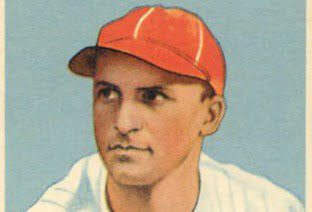
North State Journal’s 100 in 100 series will showcase the best athlete from each of North Carolina’s 100 counties. From Alamance to Yancey, each county will feature one athlete who stands above the rest. Some will be obvious choices, others controversial, but all of our choices are worthy of being recognized for their accomplishments — from the diamond and gridiron to racing ovals and the squared circle. You can see all the profiles as they’re unveiled here.

Ashe County
Monte Weaver
Major League Baseball teams now regularly turn to the college ranks for players, but that wasn’t the case in the 1920s when Monte Weaver came along. The slender right-hander from the tiny Ashe County town of Helton started his career on the diamond pitching semi-pro ball for $300 a month to pay his way through Emory and Henry College.
He went on to earn a master’s degree in mathematics and was teaching analytic geometry at the University of Virginia in 1928 when he was discovered while spending the summer playing for Durham of the Piedmont League. He won 19 games that season, often pitching on just two days’ rest, leading him to turn down a Rhodes Scholarship to devote his full attention to baseball.
Nicknamed “Prof” by his teammates because of his academic background, Weaver was eventually signed by the Washington Senators in 1931. He won a career-high 22 games the following season. His most notable achievement, however, came in 1933 when he started Game 4 of the World Series against the New York Giants. Matched against Hall of Famer Carl Hubbell, Weaver pitched 10 brilliant innings before finally losing 2-1 in the 11th.
He pitched six more seasons in the majors with the Senators and Boston Red Sox, but he was never as effective again because of a shoulder injury. He finished with a 71-50 career record before joining the Army Air Force once the United States entered World War II. A second lieutenant, he was stationed in England as an air traffic controller who also organized ballgames for his fellow servicemen — even pitching a few games himself.
When Weaver died in 1994, legendary Washington sports columnist Shirley Povich eulogized the former pitcher as being “a far cut above the common mold of big league ballplayer.”



